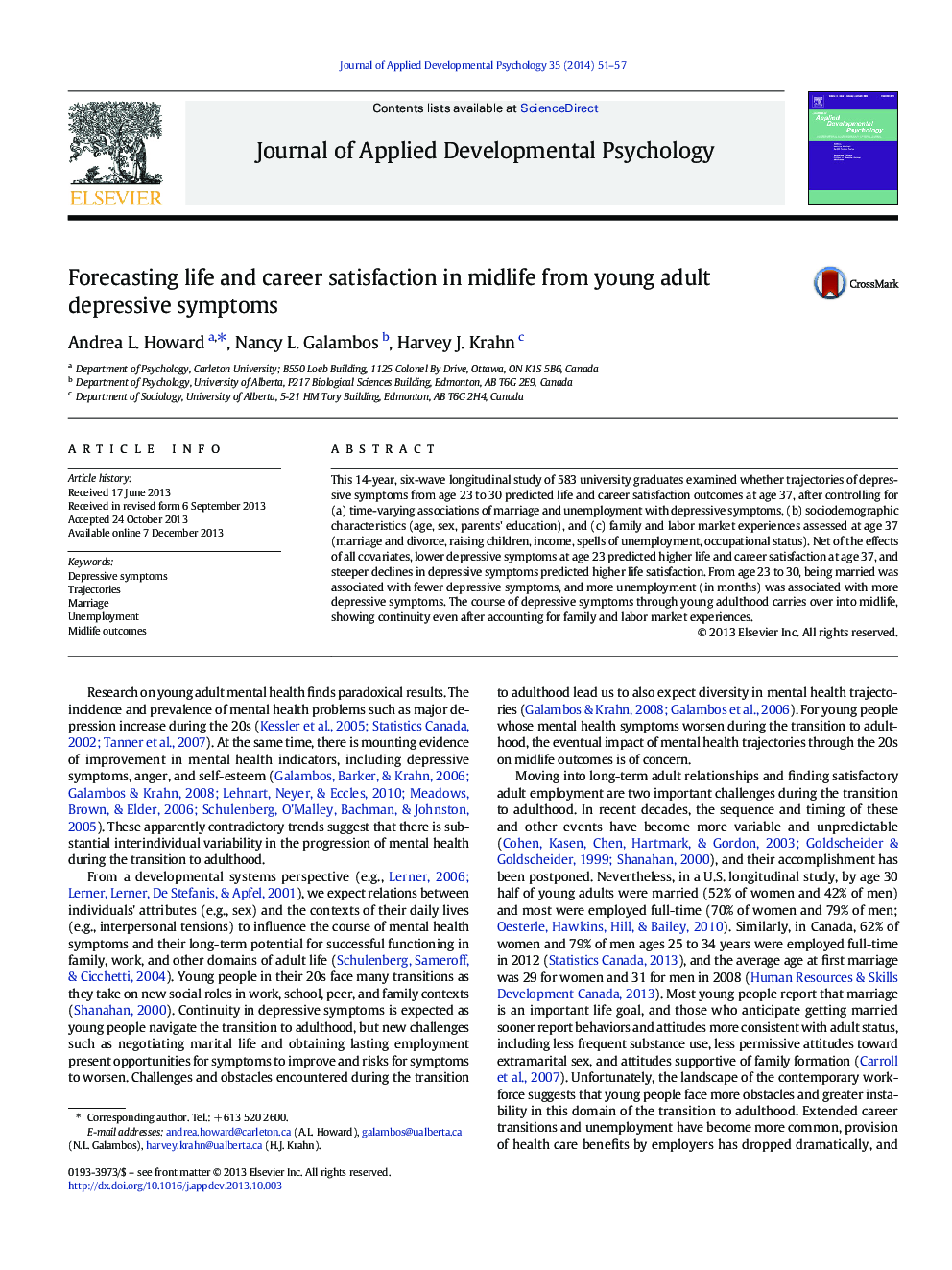| Article ID | Journal | Published Year | Pages | File Type |
|---|---|---|---|---|
| 10314319 | Journal of Applied Developmental Psychology | 2014 | 7 Pages |
Abstract
This 14-year, six-wave longitudinal study of 583 university graduates examined whether trajectories of depressive symptoms from age 23 to 30 predicted life and career satisfaction outcomes at age 37, after controlling for (a) time-varying associations of marriage and unemployment with depressive symptoms, (b) sociodemographic characteristics (age, sex, parents' education), and (c) family and labor market experiences assessed at age 37 (marriage and divorce, raising children, income, spells of unemployment, occupational status). Net of the effects of all covariates, lower depressive symptoms at age 23 predicted higher life and career satisfaction at age 37, and steeper declines in depressive symptoms predicted higher life satisfaction. From age 23 to 30, being married was associated with fewer depressive symptoms, and more unemployment (in months) was associated with more depressive symptoms. The course of depressive symptoms through young adulthood carries over into midlife, showing continuity even after accounting for family and labor market experiences.
Related Topics
Social Sciences and Humanities
Psychology
Applied Psychology
Authors
Andrea L. Howard, Nancy L. Galambos, Harvey J. Krahn,
